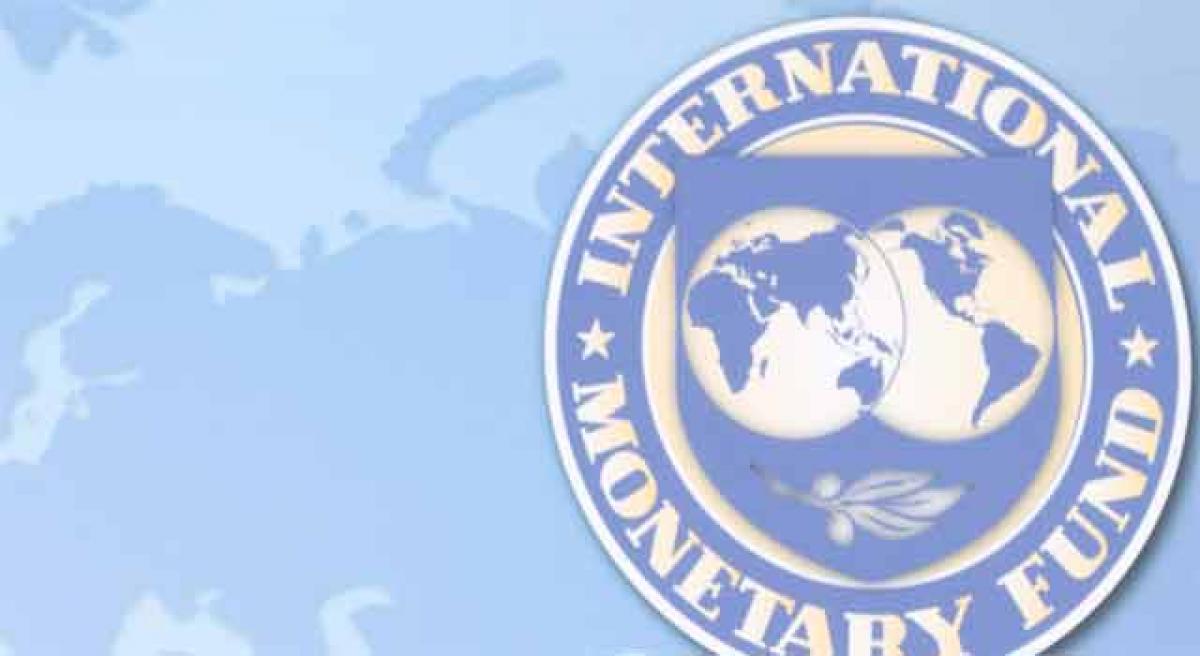Live
- Job fair for pharmacist roles tomorrow
- New ration cards to be issued in January
- Job mela at Masab Tank tomorrow
- New toilets facilitated for MPP school students
- Steps to safeguard natural springs gain momentum
- RWAs want officials to clear fog over SCB-GHMC merger
- Tanks, canals remain neglected despite execution of MGNREGS works
- BRS to celebrate Deeksha Diwas on Nov 29, Dec 9
- NCC Day grandly celebrated at SITAM
- CITU demands rollback of strategic sale of VSP
Just In

There has been a loud clamour, and rightly so, for effective reforms at the just concluded spring meeting of the International Monetary Fund (IMF). Developing economies, especially BRICS, are demanding greater say in IMF affairs – in voting as well as quota.
There has been a loud clamour, and rightly so, for effective reforms at the just concluded spring meeting of the International Monetary Fund (IMF). Developing economies, especially BRICS, are demanding greater say in IMF affairs – in voting as well as quota.
The move comes amid the IMF call to nations to refrain from all forms of protectionism for reinvigorating global trade. This at a time when domestic demand is shrinking in most economies. The much delayed IMF reform took off in October 2015.
The US, which enjoys sole veto power, relented after a gap of five years. Even in the new system, it remains the biggest member with 16.67% voting share and retains veto power. Along with European countries, it can wield majority on any issue.
The situation is no better in the case of quotas, too. The quota formula itself is a skewed one with weightage for GDP at 50%, and as much as 45% for vague determiners like openness of economy and economic variability; remaining 5% is given on the basis of international reserves.
Be that as it may, the combined capital of the 188-member IMF will nearly double to $659 billion and it will get to lend more. But, the US and the Europe can still influence the tough conditionalities that come with loans.
BRICS is right to stress that IMF be made more participatory to help economies mutually reinforce each other. India has been more vociferous to demand that the next IMF MD hail from an emerging economy and not from Europe as has been the case traditionally.
Our Finance Minister Arun Jaitley also pitched for the October 2017 shareholding review to cede greater voice, role and voting to developing countries in deference to their contribution to global output.
With 85% of global population, the developing nations deserve a better deal. Besides, being destinations for investment and as customers, their growth is also an imperative for the advanced nations.
But, the policies of IMF and World Bank (WB) support free economy and set unreasonable riders like easy hire-and-fire labour policies, cuts in domestic subsidy and welfare spending etc, which contributed to recessionary trends worldwide. It is no wonder then that WB and IMF are seen as marauding loan sharks.
Frustrated by the dominance of US and its allies, BRICS has set up its own bank – New Development Bank – which has just kicked off operations and provided $250 million aid for India. Another new bank launched by China in January, Asian Infrastructure Investment Bank (AIIB), is set to start operations; it seeks to lend up to $15 billion a year initially.
IMF’s latest global outlook is entitled ‘Too Slow for Too Long.’ Ironically, the remedies offered by the IMF and the WB to revive global growth are too little for too long.
As NDB and AIIB facilitate convergence of emerging economies, IMF and WB need to take notice. However, all should bear in mind that no single institution or group has a magic bullet for the ills of recurring global recession. All need to work in tandem to push for a sustaining global growth.

© 2024 Hyderabad Media House Limited/The Hans India. All rights reserved. Powered by hocalwire.com







